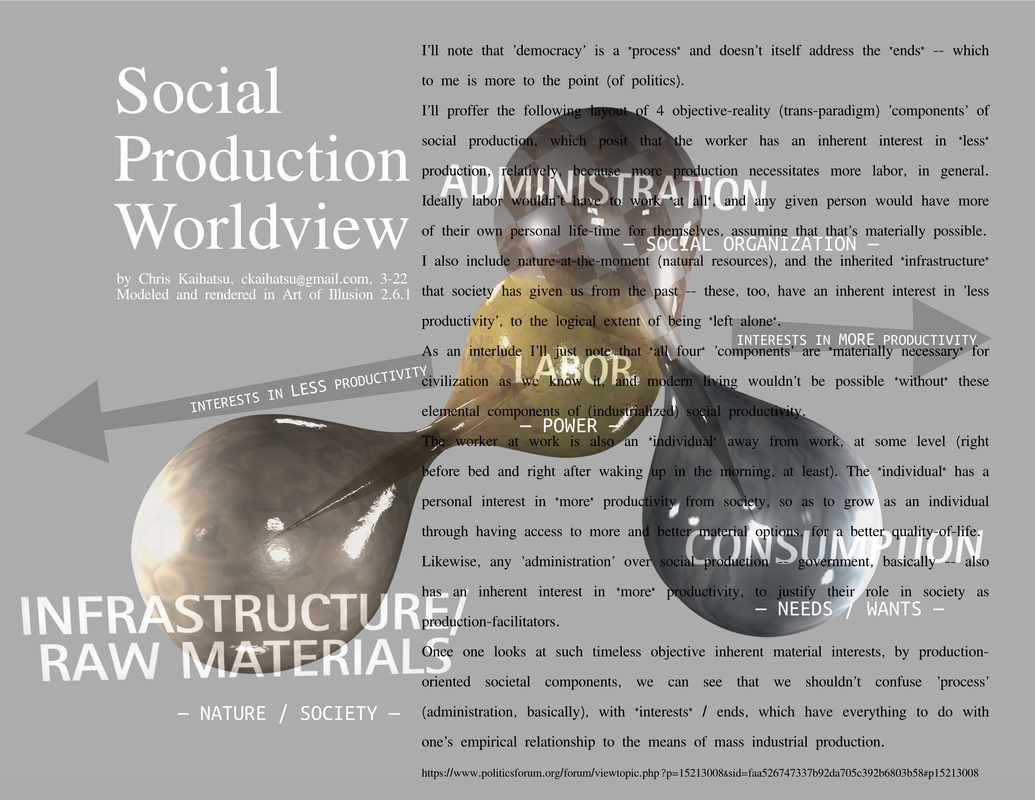libertasbella wrote:
[T]he government still has its role in society, but they need to take a step back and let the people transact as they please.
'Transact' implies the paramount importance of *exchange values*, meaning pre-existing wealth and/or private property, which is inherently *elitist*. The status quo of capitalist economics favors *those with wealth*. You're calling for freedom for *wealth*, which has already existed for *centuries* now.
At a time when governments are being publicly called to account for their oppressive, socially destructive nationalist past practices, politics should be addressing the *people* aspect regarding past nationalist national atrocities.
Namibia - The Price of Genocide
Germany agrees to pay Namibia €1.1bn over historical Herero-Nama genocide
https://www.theguardian.com/world/2021/ ... a-genocide---
libertasbella wrote:
Many confuse minarchists with Anarchists who believe that the government has no role and should not have any purpose in maintaining checks and balances. Anarchists believe that you should be responsible for defending your property, enforcing your own laws, and backing up your own contracts with as much or as little force as necessary.
The term 'minarchist' is obviously *contrived* and is meant to co-opt the *anti-capitalist* politics of anarchists, who, by definition, call for workers power and *no government* -- not that I'm an anarchist.
You're misrepresenting anti-capitalist politics, like that of anarchists, so as to lend 'branding' / name-recognition to *your* contrived politics of similarly-sounding 'minarchism', or the freedom of wealth.
libertasbella wrote:
Taxation is another big issue addressed by minarchists and libertarians alike. Some support taxation because they believe it’s a necessary evil to prevent “free riders.” Others strongly oppose it and think that it’s wrong for the people to have to pay for government funding in a free society.
Ayn Rand is one of the most notable opponents of taxation, but she also believes that the removal of tax should occur gradually so as not to cripple the economic society. This also brings up the issue of whether or not a minarchy would require the people to pay tax or fees for the services provided.
If you want a nation-state to defend the rights of wealth, then it has to be *paid* for (since politicians / bureaucrats don't produce commodities for society, while society has to supply *them* with produced commodities), and those who pay-in will then argue for proportionate political power in return for their pay-in. Discuss.
wat0n wrote:
The idea of the "minimal State" seems more like a broad principle to follow than a specific form of government.
Whatever is "minimal" isn't all that clear and doesn't need to be stable over time. However, the idea that the government should generally try to let civil society handle itself is not necessarily a bad one.
Either there's hands-on government, or else there *isn't* -- if civil society under capitalism could handle itself without plunging into Medici-family-type warfare (or NATO proxy warfare), then government wouldn't be needed in the first place.
But as soon as just *one* person objects to their own share of the pie, then the larger questions of exchange-values, wealth, private property, and rights enter into play -- it's wealth-factionalism, and it has to be administered-over by a superior civil power, meaning bourgeois government.
Social Production Worldview













 - By Istanbuller
- By Istanbuller